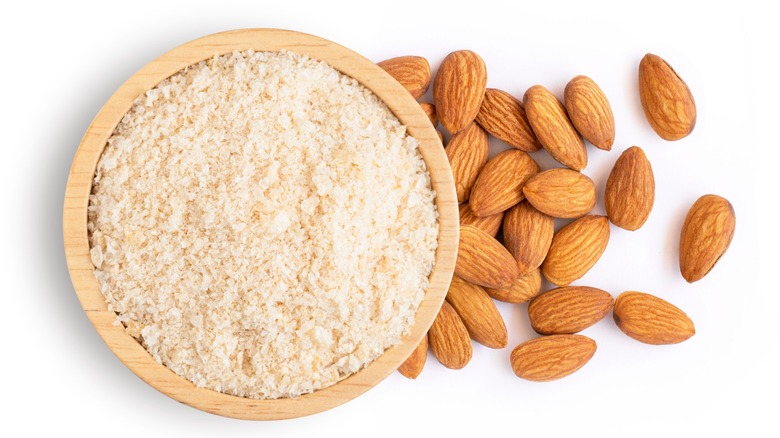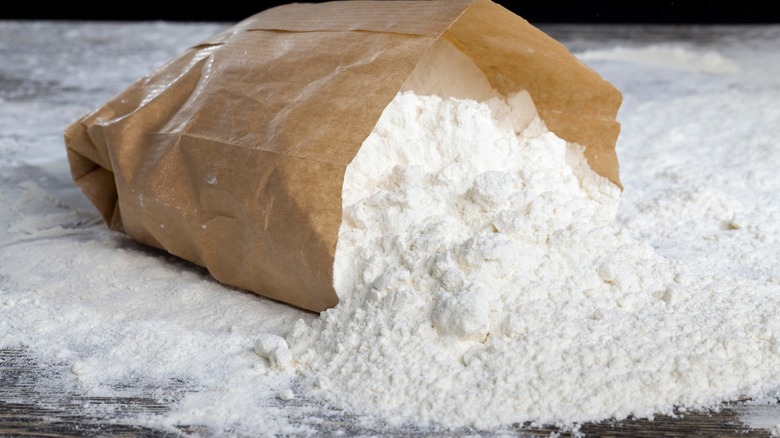The Best Way To Store Nut Flours And How To Tell When They've Expired
Nut flours have become a staple in many kitchens, especially for those embracing gluten-free or low-carb diets. From cashew to almond flour, these alternatives to traditional wheat options offer unique nutty flavors and nutritional benefits. However, storing them correctly is crucial to maintain their quality.
Firstly, the key to storing nut flours is understanding that they are susceptible to spoilage due to their high fat content. This fat can go rancid if exposed to light, air, moisture, or heat for too long. Therefore, the best place to store nut flours is in your refrigerator or freezer. This might seem unusual, but the cooler temperatures significantly extend their shelf life. When you buy nut flour, if it's not already in a resealable bag, transfer it to an airtight container or a heavy-duty freezer bag. This step is essential to keep the flour fresh and protect it from absorbing odors and moisture from other foods.
If you're using the refrigerator, nut flours can last for a few months. In the freezer, they can last even longer, up to one year. Such extended storage time is especially helpful if you don't use nut flours regularly but still want to have them on hand for occasional baking. Remember to label the container with the date of purchase or the date you transferred it to the container. This little reminder helps you keep track of how long the flour has been sitting so you always use it at its best.
Identifying expired nut flours
Knowing when your nut flour has gone past its prime is important. The most telling sign is the smell. Fresh nut flour has a pleasant, subtly nutty aroma, therefore, if your flour emits a sour or bitter odor, something akin to old, used cooking oil, it's a sign that it has gone rancid.
Next, inspect the flour's appearance. Fresh nut flour should have a consistent white or cream color and smooth texture. If you notice any discoloration, like dark spots or yellowing, or if the flour seems to clump together more than usual, be wary. Clumping can indicate the presence of moisture, which creates a breeding ground for mold. And if you spot any mold — even just a small patch — it's best to discard the entire batch immediately. Another key factor to watch out for is insect infestation, e.g. flour beetles. Any presence of bugs is a clear indication that the flour is no longer safe to use.
In general, the keys to identifying expired nut flour are in its smell, appearance, and texture. Always trust your senses and when in doubt, it's better to be safe and avoid using it.

